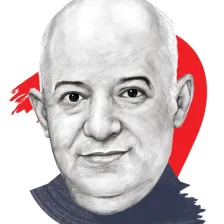In his speech at the opening of the Jordanian parliament on 26 October, King Abdullah II offered a comprehensive reflection on the country’s defining positions and on the pivotal moments in its recent memory, moments now anchored in a long and storied national history—one continually shaped by the crises of a turbulent region.
Speeches are usually messages intended for those who are ready to hear them. Delivered from the throne, however, it becomes something far more layered, employing the language of symbols and signals, as well as deliberate vocabulary and chosen imagery. In this context, his words served to chart the state’s direction at a delicate moment, both domestically and regionally.
In Jordan’s political landscape, it's important that the king speaks with clarity and conviction. His speech last week was one of strength and resilience, noting the dedication of the armed forces and the enduring value of the Jordanian people. The country was born into crisis, he said, yet has never been broken by it. Generations have stood firm, allowing the nation to rise with faith in God and belief in the homeland, confronting the region’s many storms.
The tone was unmistakably direct. “I know you wonder how the king feels,” he began. “Is the king worried? Yes, but he fears none but God.” He reflected the gravity of recent regional events since October 7, 2023, that have ushered in a new, fraught reality, emboldening Israel to expand its attacks against those it deems targets.




